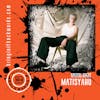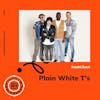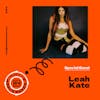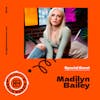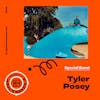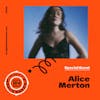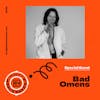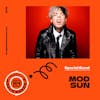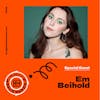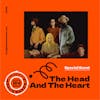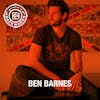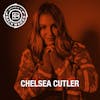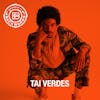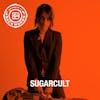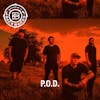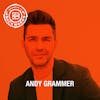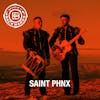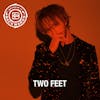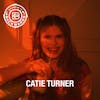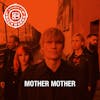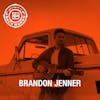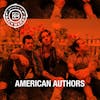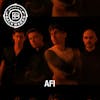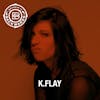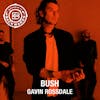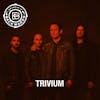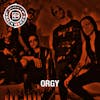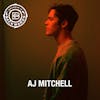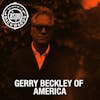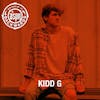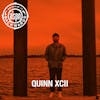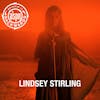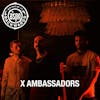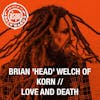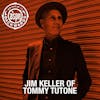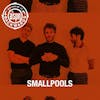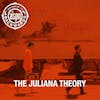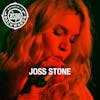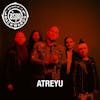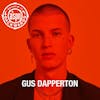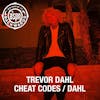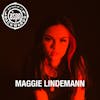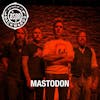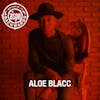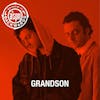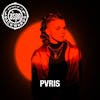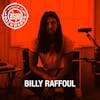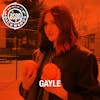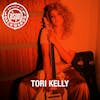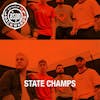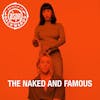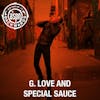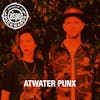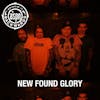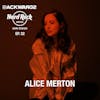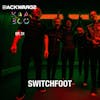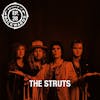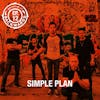Interview with Nick Mulvey
We had the pleasure of interviewing Nick Mulvey over Zoom video.
New Mythology is the third album from Mercury Prize-nominated artist Nick Mulvey and his first in 5 years. Out today on Verve Forecast (Fiction Records in the UK), the record was...
We had the pleasure of interviewing Nick Mulvey over Zoom video.
New Mythology is the third album from Mercury Prize-nominated artist Nick Mulvey and his first in 5 years. Out today on Verve Forecast (Fiction Records in the UK), the record was recorded in Paris with renowned producer Renaud Letang (Manu Chao, Feist, Connan Mockasin) and is a stunning 13 track collection brimming with Nick’s innate musicality and insatiable curiosity about the connection between humans and the planet we live on. The album was featured this morning on NPR’s New Music Friday, with Robin Hilton saying It might be my favorite record of the week…almost like living room recordings that start very quiet but then they’ll bloom in these beautiful ways." “The Gift” was also just featured as a Song of the Day on KUTX and Mulvey’s interview with Variance Magazine ran yesterday.
Journeys come in a myriad of forms. Nick Mulvey knows this, he’s been on many since he released his sophomore album Wake Up Now. Be it a change in geographical scenery – a physical move of home from the UK to Ibiza, and back – to the sea-sawing wonder and vulnerability of the everyday human experience; in this case becoming a father and navigating the pandemic. Most pertinent though, when it comes to his powerful songwriting, has been his journey to compute the scope and scale of his feelings: an attempt to embody the personal all the way to the planetary – and grasp their true inseparability.
Nick Mulvey has come a long way since the release of his critically acclaimed debut album First Mind in 2014. A musician, composer and producer, he has amassed a staggering 587 million streams globally, the equivalent of half a million albums sold and has completely sold out his first headline UK tour since before the pandemic, including his headline show at London’s Koko.
We want to hear from you! Please email Tera@BringinitBackwards.com.
www.BringinitBackwards.com
#podcast #interview #bringinbackpod #NickMulvey #WakeUpNow #NewMusic #zoom
Listen & Subscribe to BiB
https://www.bringinitbackwards.com/follow/
Follow our podcast on Instagram and Twitter!
https://www.facebook.com/groups/bringinbackpod
We'd love to see you join our BiB Facebook Group.
What's going on?! It is Adam. Welcome back to bringing it backwards. A podcast where both legendary and rising artists tell their own personal stories of how they achieve stardom. On this episode, we had a chance to hang out with Nick Mulvee over zoom video. Nick was born and raised in Cambridge, and he talks about how he got into music. He started playing drums at a very early age. His mom would take him to different percussion lessons and drum circles. He then moved on to learning piano and eventually guitar. He moved from the UK to Cuba when he was 19 years old to study music in Havana, Cuba, he ended up moving home to the UK, went to the university of London, school of Oriental and African studies. 5 (2m 10s): He got a degree in ethno musicology, and he also formed a band there learned an instrument called the hang drum, which is one of the coolest sounding instruments you'll ever hear. Explains that instrument talks about leaving the band. He was in to pursue a solo career, the major success of his song, fever to the form and all about his brand new record, which is called new mythology. You can watch our interview with Nick on our Facebook page and YouTube channel at bringing it backwards. It would be awesome if you subscribe to our channel like us on Facebook and follow us on Instagram, Twitter, and Tik TOK at bringing back pod. And if you're listening to this on Spotify, apple music, Google podcasts would be incredible if you follow us there as well, and hook us up with a five star review. 6 (2m 57s): We'd appreciate your support. If you follow, subscribe to our podcasts, wherever you listen to podcasts, 5 (3m 3s): We're bringing it backwards with Nick Mulvee. 7 (3m 6s): Hello? 5 (3m 7s): Hey Nick. How's it going? 7 (3m 9s): Hi, I'm really good. Thanks. This is Adam. Yeah, 5 (3m 11s): This is Adam. Yeah. I appreciate you being flexible on the timing I got. I had another interview right before you and he showed up later and then it ran longer. So I'm so sorry. 7 (3m 21s): It's all in the flow, man. So that's fun. 5 (3m 25s): I appreciate it. 7 (3m 26s): Awesome. 5 (3m 30s): I was going to say, this is a, this podcast about you, your journey of music and all the new stuff you have coming on and what you got going on today. 7 (3m 38s): Fucking brilliant. Let's do it 5 (3m 41s): Amazing. Well, I guess first off, talk to me about where were you born and raised? 7 (3m 45s): So I was born in a town called Cambridge in the UK and I was, I was raised there. I lived there until I left when I was about 18 years old and my family is still based there now. 5 (3m 58s): Okay. And how did you get in the music where you come from a musical household? I mean, obviously you are incredible musician and all that you've achieved. So I'm curious to see how you got it in. 7 (4m 10s): Thank you, Adam. Yeah, I mean it definitely music was very normalized around me as I was growing up. My mum was a professional singer, although she'd sort of stopped by the time I was born, but you know, there'd be music. We would always, we're still one of those families who like sing together at Christmas time, which was normal for me until I found all my friends found it really funny. And so, yeah, and then I just love music and was making all kinds of music. And then in my teens, you know, naturally started to grow into my own. 7 (4m 51s): Self-directed kind of learning. I wanted to play the drum kit and then I wanted to play, I did drums in and I love piano. And then I learned guitar from there and I was just very hungry to, to absorb and consume all kinds of styles and all kinds of music. 5 (5m 8s): So it started, you started off on drums. 7 (5m 11s): Yeah. I mean, as a nine year old or a year old, that was like obviously the best thing possible and the drum kit and yeah, one of our neighbors had a drum kit and I loved it and I really took to it. And, and then my mum, particularly my mum was quite good at like feeding me opportunities, you know? So she, she created other things like took me to drumming circles. It took me to other precaution classes and some of them like wouldn't stick. I didn't like the ones that were more classical or formalized or, you know, I, I certainly wasn't interested in learning to read music because I could just feel it in my body. And I felt like I could, I could go directly to, to the thing I wanted. 7 (5m 52s): So I didn't want to be so cerebral. And then it continued from really like, again, my mom created this opportunity for me when I was in my mid teens with a local pianist to who, who was also in Cambridge, who was a bit older, but he's, he's a business of some reputation, Frank Harrison and Frank's dad, Frank Dido in this art gallery with all these amazing paintings on the wall of this kind of very amazing environment. And there was a grand piano in that art gallery. And I would go and meet Frank every Friday. And he, he basically just taught me in a very instinctive, intuitive way, the bare bones of like harmony music, how it works, why this chord feels like it wants to go there, why this cord wants to go there, what it is to resolve what it is to clash or these or these things. 7 (6m 48s): And I was just like a sponge, you know, it was about 14, 15 years old. And he, he taught me the bare bones of, of like how, how it works basically. And it has a chords and chord sequences and stuff like that. And then later on, I was about 18. I picked up the guitar and I, I knew I was home with a guitar, you know, because all of the drums and all of the rhythm that I'd, I'd, I'd learn in, in my, when I was younger, was there and the right hand, my strumming hat that was kind of like the drums and then all of the harmony and all of the chord stuff was kind of there in my left hand, you know, the, or the Peerless stuff. I remember thinking it's kind of naive, but it, it kind of still rings true. It was like, yeah, there's all my instinct as the drummer and the right hand. 7 (7m 33s): And still to this day, I, I, I can slow down my right hand, but I can't really explain it. I just kind of do it 5 (7m 40s): Interesting. 7 (7m 41s): That makes sense. 5 (7m 42s): Because if you think about the high hat or what you're hitting on your right with your right arm, it would be yeah. The more of the, the rhythm of what you would be doing. That's interesting. 7 (7m 52s): Yeah. Yeah. And then along those same lines, I remember this literally the first epic thinking that's going on in the right hand. And then the left hand is the piano and the, you know, more of the intellect, more of the decision-making choice, kind of someone had taught this to me. It wasn't self taught, like the right hand was totally self-taught, you know, the drumming stuff and the left-hand was, it was more things I'd learned and was more choices and decisions. And I can explain my left hand these days. I can, I can, you know, break it down so that that's kind of some of the foundations for me. 5 (8m 27s): Interesting. And I, I'm super curious to hear about how you learn, how to play the, hang the hand, because I didn't know what the instrument was. I, I looked it up after it when I knew I was interviewing you. And I'm like, this is the coolest looking instrument ever. It looks like a, it's like a tortoise shell almost. It's kind of like, and I was like, oh, okay. And I watched, I went on YouTube and I found this girl playing it. And it's like the coolest instrument I've ever seen and heard, like, I was just shook like how rad the things. I mean, it was like transcending. I'm like, you know, I was just like, oh my, I could just say, like lay down and listen to this for like the whole day. 5 (9m 8s): It's just like a calming instrument, but I want 7 (9m 12s): To get to that. 5 (9m 14s): Yeah. I, before we get there, though, I'm just curious. So like learning all these instruments and becoming so like absorbed in it and just loving it so much. Were you in a band or was it just basically, you just wanted to learn where you're writing your own songs at this point or not yet? 7 (9m 28s): I mean, so like I, I had bands. Yeah. Yeah. It made bands of my friends and my bands at school. And I made bands with my friends as we, as we, you know, went through high school and, and, and then, and then I was joining like local Samba bands joined the local Cuban band. I, and I was beginning to write songs. Yeah, I was right. So I was also like, I got really into like my, again, my mum, she gave me, she gave me an album by Steve Reich, the minimalist composer, Steve Reich called music for 18 musicians, R E I C H D. 7 (10m 11s): I can, he's a legend of American modern classical music. And it's, it's still to this day, one of my absolute favorite records. And I, I start, I was writing songs at this time, but the reason why I mentioned that album is that, that also inspired me to write, you know, I wrote all kinds of stuff. I wrote like sort of my own modern, classical minimalist pieces. I wrote stuff that wasn't song form. I just, I just kind of made my own notation system and like, yeah, I got, I just, just, I don't know. I didn't, they didn't know anything about anything. I just did stuff and just really had no question of what my passion was and, and the very open interest in all styles, I think. 5 (10m 58s): Well, so then you ended up moving to you move down to Cuba, right. At 18 or 19 or something. 7 (11m 5s): I was 19. Yeah. 5 (11m 8s): Was that obviously you finished school and just decided like, I want to go down there and study, or like, tell me about that. 7 (11m 14s): Yeah. I mean, I didn't quite know what I wanted to do yet and I'd finished school and I knew it was, you know, I wanted to have a life of music, but I didn't know what yet. And in a friend's brother was whether it was w had been traveling and he came back to Cambridge and he, when I saw him, he said, oh, Nick is funny. I was, I went to this music school in Havana. And when I was there, I kept thinking about you. I thought you'd enjoy it. And I thought a music school in Nevada, it just like seemed impossibly cool to me in an interesting, so I looked up the school, it had a very basic website El Institute, or superior the artists Institute of higher arts basically. 7 (11m 55s): And it's, it's this, it's this, this dream project, I think directly from Che Guevara and Fidel Castro. When the revolution happened in the late fifties, they took command of this huge mansion and property with a golf course and stuff on the edge of Havana with a huge, with a huge dwelling on it, big house. And the story goes that the two of them were walking through it. And they, they started to imagine this being rather than a privately owned individual property, they could be transformed into the Caribbean's premier art school. And they basically did that. You know, obviously it would then minimal means when the embargoes kicked in, they couldn't, they didn't have a lot of materials that they developed these very interesting buildings dotted around this land. 7 (12m 43s): And it's now, and has been for decades, this, the school of music, don'ts film photography, you know, and it's like 2000 young people, maybe a 60% Cuban, 40% international. And, and I just, I just got in touch and, you know, was lucky enough to, they said, sure, come on. And, and I got, I got a spot there and, and was there for a good chunk of time, just really learning some Cuban guitar learning percussion. And it was the first time for me that I played every day. I played 2, 3, 4 hours every day. And I started to have that very gorgeous experience of like fluency when we started to have, you know, if I have an idea, I can, I can just, it can just move through my fingers, you know, that, that began to experience that, which is, I will always remember that. 5 (13m 37s): And where did, and then where did you pick up? Where did you pick up the hang instrument? Was that there was that before? 7 (13m 44s): No, it was just after, like, I did decided what to do next. I found this course in London, that was like a degree, a university degree in ethnomusicology. So that's like the anthropology of music. Ethnomusicology looking at music from, from around the world, particularly Africa and Asia throughout different time. And I, I just was like, yeah, that, that's interesting. I'd like to go do that. And just before I, I started that uni course in London, I went to a music festival in the UK called WOMAD and there was a little stool, like a percussion shop, like a little store with like loads of different percussion instruments. 7 (14m 28s): And they also had two of the first 60 hand drums because the instrument had only been invented, you know, maybe three years before that. And, and so there really weren't that many. And so me and my friend let discussable, we stumbled across the, I remember absolutely falling in love with it, and I'm calling my mom. And again, this is coming up a lot already in this podcast. And so she should, you know, she's just been, Yeah. You know, really having the money to get this instrument, but cold calling my mom up saying like, please, you know, I've seen this thing, trust me, like send me the money and, and I'll get it. 7 (15m 8s): And you'll understand. I couldn't quite describe that. I said like a UFO, like a tortoise shell. Sounds incredible. And, and yeah, so then I took that instrument to London as a student. And so did my friend, he went to a different, he went to an art school in London, but nearby, and then within, within six months or something, we met the other players and we formed a band Portico quartet based around this Sandra. 5 (15m 37s): Oh, wow. Okay. So it all, and how long were you playing it before you were able to, you know, actually, you know, put a band together and write with this, with this instrument? 7 (15m 48s): Well, I mean, the thing about the hang jump is it was absolutely instant for me because I was, I'm a very intuitively led rhythmic person. You know, I can, I can kind of get music out of something. I'm not a specialist. You know, I'm pretty much a specialist at one thing in a way with, with, with the guitar. So I was saying I was already playing a lot of different drums out there, you know, frame, drums, skin, drums, and I could take those rhythm core patterns and then literally transfer them over to the hang drum, H and G and drum. And it was a, an exciting process for me because I didn't have to do anything differently. 7 (16m 27s): And the same patterns when now gloriously melodic and harmonic, because the hang drum is, you know, if anybody doesn't know is a tuned percussion instrument, similar to the steel pan, but much softer. And you use it with your hands and your fingers. So I was taking those same patterns and just doing them on the hanger drive and suddenly making this gloriously melodic music. So, so in answer to your question, it, it took no time at all. And, and it was a process of some months before we had a little band together, but yeah, it was really, it was really quickly 5 (16m 59s): Because what the, what the hang drum you're yeah. You have the rhythm, but then it's almost like there's these holes on it, right. Where you can tap them in it. And it almost gives a different, is it different notes? Cause it sounds like you're, you're almost playing different notes. Like if you coordinate with like, here's an a, or this is an E or, oh really. Okay. 7 (17m 20s): It's a scale. Yeah. It's a scale. And actually on that point, interestingly, when they first made that they were really free forming, which scales they use, they use, they experimented lots of different scales. Some, some of them, some stranger really interesting scales. And I liked that. And then, and then a certain point copy is after I got into them around maybe 2007, they uniformed all the hang jumps to be this kind of de harmonic minor. And that's cool because it means every hand drum player can jam together. I thought it was a, I thought it was a loss in a way because that, that variety of the diversity of scales and it was, it was cool. 7 (17m 60s): I thought, 5 (18m 1s): Yeah, because I looked it up, I'm like, I've never even seen this, but then I found them online and they're not cheap, but they're also like really, really cool sounding that's sounds like an instrument. I was like, wow, this would be so rad to learn because it's just such a cool, like calming instrument. Yeah. 7 (18m 17s): Oh, there's the, it's a real impressive invention. You know, you don't hear, first of all, you don't hear of many new instruments. Like there's new technology, there's new, you know, all kinds of new techniques, new ways, but in terms of new acoustic instruments like that, it's pretty rare. And then they, they they're deep, man, the guys who made it Switzerland are very deep. You know, they, they are very aware of literally the certain resonances and frequencies, which, which open up the human physiology in terms of the opening, the heart. And they've really explored that. So when you're, when you hear it and you, you do have this kind of like wow experience, it's totally designed that way to really open up kind of our physiology. 7 (19m 0s): And it's just a really beautiful, beautiful sound. And it's almost like it would take a guitarist years and years to develop his understanding of his instrument, his amplifier, or her pedals. Like it would take them a long time to, to develop this sound as good as this, but the makers of the hand drum we've already done that all you got to do is strike the thing with your finger in the white one, the right way. You know, it's great for kids. Kids can do it. And this Gloria sound is, it just, just happens for, you know, so it was the perfect basis to start a band and make a band with, you know, 5 (19m 37s): And I haven't heard of that of any bands really using it. Look, it's such a beautiful instrument that I would assume that more people would use it and maybe, you know, more than I do, but I feel like not a lot of people are using it. 7 (19m 49s): Yeah. I mean, York's used it for Tet has used it. It's kind of, you know, it's definitely not an underground thing. Like it was back then. I mean, by the way, not a win with this band that we formed. And then we had, you know, our process of releasing albums and doing well. And like we found out, we found ourselves for a moment at the, really at the forefront of this new instrument. And then, you know, my journey went different ways and, and in, in the interim years it's become, I would say like quite well known the hand drawn, but it's still like, it's still pretty pretty out there. 5 (20m 30s): Yeah. It really is. Like, I've when I saw it, I was so intrigued. And then when I heard it, I'm like, wow, this is such a cool sounding thing. 7 (20m 39s): You should get your hands on one. 5 (20m 40s): I know I looked it up and I'm like, whoa. And yeah, it's rad. I know it's funny as I showed it to my father-in-law, who was out at my house and where, when I was learning about it and I was like, look, cause he's waiting to music. I'm like, look at this instrument. This thing is like, have you heard of this? And he's like, no, and I'm showing it to him. And then he showed me, I think it was Thomas Edison or somebody like a inventor made an instrument. And it's of like the S the tons, like, if you were to take your finger and kind of rub it over the top of a wine glass with water in it, it goes like, like it has that high pitch. It's on, he showed me this video and it's like on a, like a rack, like a, like a bar. And there's all this glass expands and it has water. 5 (21m 23s): And it sounds like an Oregon. Have you seen that? 7 (21m 26s): Yeah. So you don't have to turn your hand because the whole structure 5 (21m 30s): Turning and you just put your hands down, like it's a keyboard. And it's like, he showed me that and I'm like, oh my God. Like, and there was another instrument just blew my mind. 7 (21m 42s): Yeah. Yeah. I, I have, I've seen that once. Yeah. So the video of it was amazing. 5 (21m 48s): Yeah. It's just so wild, but that's so cool. And again, when I heard that I was just like blown away, but you, obviously you left that band. You, you guys had success, you left the band, then you started your own solo career, which ends up having, you know, mass success as well. Was that a hard decision to make, like leaving to start pursuing, you know, a singer songwriter career? 7 (22m 11s): Yeah, it was, you know, cause we, we were young and we had our band, you know, you, you lived, I mean, I think, I think some people know that that journey, you know, like what it's like to make a band with your friends, they all people have their first startup company or, you know, it's your whole life. And we lived there and we were a tribe and we all live together. So it was, it was something, it wasn't a hard decision to leave in the sense that I knew I had to, to go on this path, you know, because I, I was a guitarist and I wasn't playing any guitar and I was a singer and I wasn't singing, you know, so I wanted to do both of the times songs, which weren't a part of Portico quartet, and I want it to grow and I wanted, you know, I wanted to do different music. 7 (22m 56s): So I knew I had to, and that I couldn't go against that, but at the sentence, but it was a hard decision cause yeah. You know, I love being in that band as well. 5 (23m 8s): And once you be like, what do you do for like you, you just decide, okay. I mean, obviously you leave the band and you have probably a handful of songs together. Do you just go out and just start trying to play everywhere? You can. Like, what was your first, you know? 7 (23m 22s): Yeah. I mean, being in the band, I already had a good experience, you know, with sort of now I probably five or six years living in London, I'd done my degree and I'd had a good run with like, with the band, with record labels, with having nominations surprises, with making a good network of contacts, you know? So it wasn't, it wasn't like starting from scratch. And I just, yeah, I already had a good sense, for example, of the, of some of the different scenes in London that I was a part of or that I wanted to go and play at. And, and then you just kind of, yeah, start, start making a name, name from it for yourself. And I started playing, playing a lot of nights and developing material material. 7 (24m 6s): I remember I got a little studio space. I had just enough money to get by. I had an like, you know, I was a teacher's assistant in a classroom as well for what three now for a year to just to just help them keep the pay, this disco studio space. It was like a, not a recording studio, little writing studio I had. And I remember like studying my heroes. It was like this friend, just like, I'm just gonna like, fill my mind with like how the greats, how they write songs, how they, how they put bands together, how they, you know, I remember being just really hungry again and it wasn't too long before I signed a deal. I made a deal with universal records and I'm on the, yeah. 7 (24m 50s): You know, like I got help making my first EPS plus recordings. Then I got a booking agent and I kind of all, then it's hard for me to remember the sequence of everything, but it then sort of started to get kind of plugged into more professional scenario with them, my first recordings and starting going out and support tours, you know? So that was a real, that was quite kind of a baptism of fire because I was playing in pubs or, or small venues. And then I was going out and supporting these Mexican guitars. Could, what are we going to Gabriela for 18 nights around 5 (25m 29s): TOA? I know 7 (25m 34s): Them for a long run, you know, they're playing arenas in, in, in Germany and France and yeah. Support them for bug states as the sport, Willie Mason supported Laura Marling Leanne have asked like it, my life seemed to suddenly get, like I was out on the road a lot. I was just now kind of like learning how to perform these songs pretty much solo at the guitar. And I was, you know, yeah, that was, that was how it was kind of building for me. And it wasn't easy in a way. 7 (26m 14s): I definitely felt an interruption with, with the renewable rhythms of, of being at home in London and, you know, it was a lot to get used to as well as, as well as really fun. Good. 5 (26m 28s): And what would you say, like, you know, obviously signing universal and having these big moments, these big tours, what would be, can you think of like a turning point or like a milestone moment for you that you're like, wow, like this is really, really working. I'm so glad I inter decided to take this path as the songwriter singer songwriter. 7 (26m 51s): I mean, I think I read there's various things I could point to, you know, like the first album. I think probably the answer to that question for me is a song called fevers or the form. So it's kind of a combination of an artistic response. Like it was something I made that I was like, wow, I'm really proud of this, that this is mixing the things I, I wished to make, you know, from songwriter to like more electronic music. And it was a very instinctive, natural song, quite simple, subtle, but it had genuine depth and texture. 7 (27m 32s): And like I still, to this day, one of my, it is my most successful. So, and, and I think I've made that with a producer called Dan Carey down in Southland. And so, and it was the beginning of our relationship with we've done a lot of work together, Dan and I, and the thing that that's that making that song and then, and then, then releasing it and it kind of being, you know, a hit with a small age, you know, it kind of, it really, it has never stopped connecting it's, it's, it's, it's a special song for me, that one, and, and that opens up a lot of doors for me. 5 (28m 9s): And from like, obviously you have a new record coming out with next month is, or July next month, June, 7 (28m 16s): June. 5 (28m 18s): And like, so just to get into where you were kind of when the pandemic happened, like, what what'd you have, like where does this record fall into that? Or had you started it, did you begin writing it much later? Like where were you when COVID hit and then how did it moving forward? 7 (28m 34s): So first album was released in 2014, but then things, I was quite slow with my process with writing the next albums that it was 20 end of 2017. Yeah. And I taught that extensively for two years all the way up until 2019. When I finished touring that record, I now had two kids. Yes. A life life is life is flowing. I'm sure 5 (29m 1s): I can imagine 7 (29m 4s): Has a full and, and I decided to move to be with the family. I finished the, the last kind of shows of the second album campaign. And now I wanted to kind of write the new album and live in a warmer climate, basically simple as I wanted it to live. I wanted to have less trees in the cold winters and, and the kids were young. And so I moved to the beach and I got writing through 2019. I started developing these songs, which would become this new album. And then of course, beginning of 2020, I managed to get to UK in January 20 and did some demos. And then, and then, you know, in a way that the, you know, the pandemic happening at that time was quite kind for me because I wasn't already out on tour having to cancel shows and, and, you know, like cancel album campaigns and stuff. 7 (29m 57s): I was already in a quite insular process of writing new material. And then it just kind of meant I had a bit more time in a way to develop this material. And I mean, it's been as big as big in many effects dependent on me, but, but I'm grateful that the timings were that they were in many ways. For sure. 5 (30m 21s): All right. So yeah, it sounds like you were going to take some time off anyway, and then to focus on the record, do you feel like it, the pandemic had any effect on the way the album sounded at all? Or was it you already were planning on kind of approaching the record this way anyway? 7 (30m 38s): Yeah, I would say that the, my wheels were rolling. I knew what I wanted this record to be the, you know, being on stage a lot with the second record really taught me a lot of basic principles about what I wanted to do with this, with what has become the next record. So the, all the tours I did back in 20 17, 20 18, 20 19, like I knew I wanted this, this next record to be very pure. Like I wanted to have space to breathe, not fill up too much. And yeah, I mean, my, my, the things I care about writing about, I've just been focused on them. 7 (31m 17s): And I think they, I didn't have to change them with the paradigm it's already resonant. You know, it's, I'm singing about, you know, th the, this time of great transformation, the songs are personal and they're planetary, and they will always like that. And I didn't have to change a thing. And they just, they just resonate, you know, and I think I made the decision to make the album with a producer in Paris, could run all the time. And it wasn't the easiest thing to decide to work with a producer in a different country. I was living obviously in the beat, the Spain, he was in Paris and the world was locking down. 7 (31m 60s): But in actual fact, when we started working, when the world is opening up a little bit, this was the end of 2020. And I remember this little corridor between everything and Paris and his studio for various reasons just remained open when everything around it was shutting. You know, it seemed to be like consciousness shutting down here and there, and Breno himself was the, the owner of his studio. So he was like able to say, Nope, we're keeping business as usual. They're open. So I was able to, just to keep making this record, despite everything closing down. 5 (32m 34s): So it wasn't like something you had to do virtually, like you, you didn't have to approach it any differently when it came to that, it sounds like, well, 7 (32m 41s): Well come the beginning of 20, 21, we were still working on the record, but of course, then there were another wave of like proper, proper lockdown. So by that point, we then did have to pause until April. So then we picked it up in April and I finished off with a few more sessions embarrassing, but yeah, it's, it's been a revelation working with our or producer 5 (33m 10s): And it's the first time you've worked them. 7 (33m 12s): Yeah. Yeah. I was, I was, you know, I was tipped off to his work. I was, I was put onto his work. Yeah. Just, just before I started working with him. So I didn't, I didn't know him personally, but I knew a lot of the albums, you know, I knew that a lot of the records he made him, he made all the records with Feist back in the notice. 5 (33m 31s): Oh, sure. Okay. 7 (33m 33s): And he made an album I've always loved back in the late nineties called clandestino, but manager. 5 (33m 39s): Okay. 7 (33m 40s): So, and he's done a lot of stuff in recent times. We've Mac DeMarco and with Conan moccasin. 5 (33m 48s): Yeah. He's got, it's quite a, you know, diverse, you know, John, I mean, diverse amount of records there. 7 (33m 57s): Yeah. I mean, he's really, one of the top producers in France is very much at the top alternative, you know, producer, I would say in France, he's a, he's a legend man. I mean, he's, he's a master of, I didn't find a genre that he, he didn't, he couldn't explain, you know, like when I, and I love a lot of wide range of music and a lot of them influence my music and he was, he had such a working understanding in depth understanding of, of different genres and just proper old school producer. There aren't that many of these days, I don't think. And he, I think you can hear it with this, with this new album, new mythology is the name of the new album. 7 (34m 42s): I think you can hear it. It's it's like these recordings are just like a really, really high quality recordings. And, and he used to think that I really 5 (34m 51s): That's amazing. Mecca is the first single you put out for nursery. 7 (34m 55s): Mike, Mike is now the it's the fourth 5 (34m 58s): Oh fourth. Okay. Okay. Then there's the one I just recently listened to. So I assumed it would be, but I guess the record is coming out in a couple of weeks. So that makes more sense. So, so, well, tell me about Mecca. 7 (35m 14s): Yeah. Mecca for me is a really exciting track because it is, it's quite a new space for me, musically. I'm one of the reasons it's a new space for me, musically is because it's the only cover on the album. So the song was written by someone else's, it's, it's written by a band from the UK who were no longer together anymore. I kind of, yeah. Yeah. Post rock indie band called wild beasts. 5 (35m 45s): Okay. I hadn't, I've never heard of him. I didn't realize that was the cover song. 7 (35m 49s): Great band. And I always loved that song dance called Mecca, and I kind of decided one day to learn it on the guitar. And then I realized, yeah, I, I started to look closer to the new X and these lyrics are incredible. And, and because someone else wrote it, it does, it makes musical choices that I would normally do myself. And that's why it kind of pushes me, pushes me to do two different plays, much more into my full set of voice in, in the, in the singing. And then, and yeah, so it's also a song where like most of the time I start recording on the guitar and that was the same with Mecca. 7 (36m 35s): But somewhere through the recording process, we actually muted my guitar part. And it was like, there it is. Wow spaces. It was much better without my guitar. So for me, it's exciting. Cause it's, it's a song where I'm not playing guitar. It's not. Yeah. I think it's, I'm really proud of this piece of work actually. 5 (36m 54s): It's quite, is it quite different from I have, I have to go back and listen to the original now, is it quite different from the original sound of the song? 7 (37m 1s): I'd say so. Yeah. I mean, I've wanted the song basically, but I always loved the song. And when I, when I found out how good the lyrics were, I was like, these lyrics need to be really understood. They mean they can be really clearly said, I didn't quite get them. The song, the original song is brilliant, but it's complex. The, the, the, the arrangements, the musical choices they made in the studio, the way they've performed it, it's, it's really complex. And I just thought, you know, actually we can be simpler than this though. This is going to really cut through and resonate if it's cutting space debris. 5 (37m 39s): Amazing. Well, congratulations on the record coming out a couple of weeks, and then you're doing a tour of the states. I saw you have a couple of, you have a solo show in LA and doing New York and Toronto, and that's exciting, 7 (37m 52s): Man. I'm so ready and excited to turn this music, this album. Yeah. 5 (37m 58s): Very, very cool and glad you doing Glastonbury too. Aren't you? 7 (38m 2s): Yep. So we've got, we've got a lot of toys in the UK. It's actually a really intense moment for me, because with all this buildup that I've just described over many years, and now this break from touring and everything, I'm getting ready to release this album. And I've actually just recently developed a wrist injury, 5 (38m 18s): Which gosh, 7 (38m 20s): I don't know. It had that. Yeah, it's, it's really, it's a deep process for me. It's a deep journey and you know, I'm still, I'm in the rehearsal studio now, but we're, we're finding a way to put this show together in a really interesting, really great way that is I'm playing a bit less guitar, you know, and I come to sort of states in July. So I'm hopeful that, that the injury will be fully cleared by then. But right now, having been to a lot of fear and deep dense feelings around it, you know, I was pretty, pretty unpleasant to be around for a week or two back in a month ago. 7 (39m 5s): Cause I was looking like I might have to cancel everything. Thankfully I don't. But having been through that and now I've gone into acceptance and this wrist injury is teaching me so much right now about, about having the courage to show up in different ways in stage I'm playing piano again, you know, I'm, I'm, I'm singing songs without the guitar. I'm bringing more of the recorded sounds on the studio, into the production stage, which is wild. And, and it's, it's, it's, I'm pretty sure this wrist injury is going to be something that is opening up the whole new and next levels for me. 5 (39m 41s): Right. It's like, you're almost, instead of staying on the, just the one thing that you're now you're having to like, you're there, you're forced to almost re evaluate how to do the show alive. 7 (39m 53s): Yeah. And it was frightening, you know, it takes me to uncomfortable places, but I'm just thought, okay, this is where I grow. This is it. I'm going to be up on stage with all guitar in my hands. That's cool. Yeah. It's going to be great. It's going to be really, I like that. It's going to need me to share that vulnerability with my people, with the crowd, with the fans and we gonna have to co-create it together and yeah, it's, it's, it's a deep person from Ilana. 5 (40m 26s): Congratulations, Nick, on the record and the, you know, the shows here in the states, I know that if not all of them are sold out, I know the LA one is for sure. Yeah. So congratulations on that and what I've heard of the record's amazing. And I appreciate your time and thanks for being flexible on the time as well. 7 (40m 45s): No, no problem, man. No problem. Nice to chat with them. 5 (40m 48s): Yeah. I have one more quick question for you Nick, before I let you go, though, I want to know if you have any advice for aspiring artists. 7 (40m 56s): Yeah. It's something I'm really passionate about. You know, I don't know about advice. Like I'm a bit skeptical of advice cause I'm, I'm a beginner in, in, you know, in some senses I try and really stay beginner if you know what I mean in, in, in the openness to, to things, but study your heroes, study your heroes really closely. And you know, like I think, I think, yeah, just, just do things you have to it's like this make music that comes from a place that is so deep inside of you. 7 (41m 52s): It's so necessary. Peter made that music you'd be kind of deformed or, or like unresolved or frustrated if you didn't make the music, like make it from a place of such deep necessity, that the question of whether it's good enough or how it compares in the, in, in the world to other worlds is just completely irrelevant because you made it for your own reasons because you needed to, because you're happier now that you've made it. And, and that is the way for young musicians to be liberated from the tyranny of comparison from materially of like thinking too much about, you know, judging themselves too much. 7 (42m 36s): You know, the question is like, can you go deep enough to find something that you just have to express?
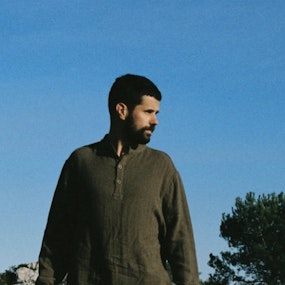
Nick Mulvey
Journeys come in a myriad of forms. Nick Mulvey knows this, he’s been on many in the five years since he released an album. Be it a change in geographical scenery – a physical move of home from the UK to Ibiza, and back – to the sea-sawing wonder and vulnerability of the everyday human experience; in this case becoming a father and navigating the pandemic. Most pertinent though, when it comes to his powerful songwriting, has been his journey to compute the scope and scale of his feelings: an attempt to embody the personal all the way to the planetary – and grasp their true inseparability.
“If there’s one word that sums up what this album is about, it’s ‘interbeing’” he says of New Mythology. In these times of urgent crisis and great opportunity for the earth, these are songs that recognise the symbiosis between family and friends, land and trees, soil and sky “I am in the city, in the forest and the field”, he sings on Begin Again. Yet, they’re not just loveletters to our environs, they're also enlightened and balanced – stories that recognise the peril of our heating planet but also celebrate the reemerging, ancient ways of relating to the world and each other.
On New Mythology, humanity and the natural world are enmeshed. That’s interbeing – that’s the interconnection of all things. “For me this album is about showing up and not running away. From myself, from these times, from taking responsibility. I could coast on inspiration, charm and high vibes and not worry about the more structural things in my life,” says Mulvey, “but who would I be kidd… Read More
Featured Episodes
Here are some great episodes to start with. Or, check out episodes by genre.























